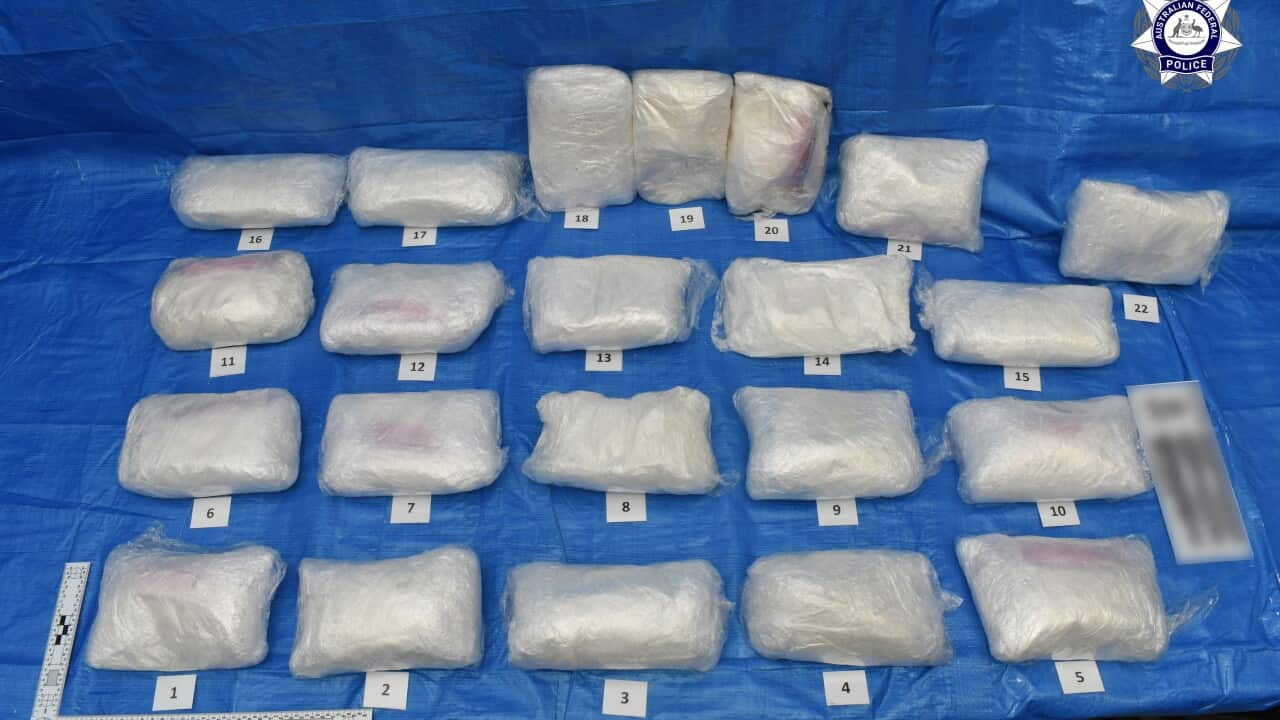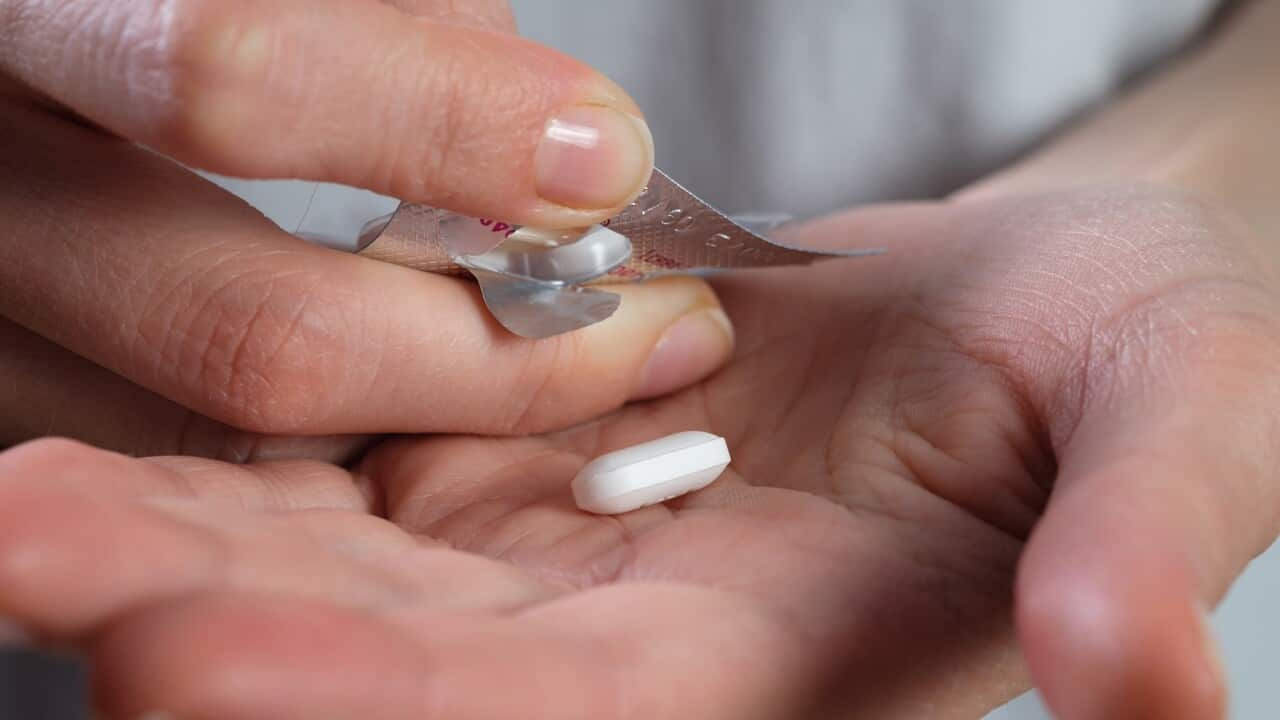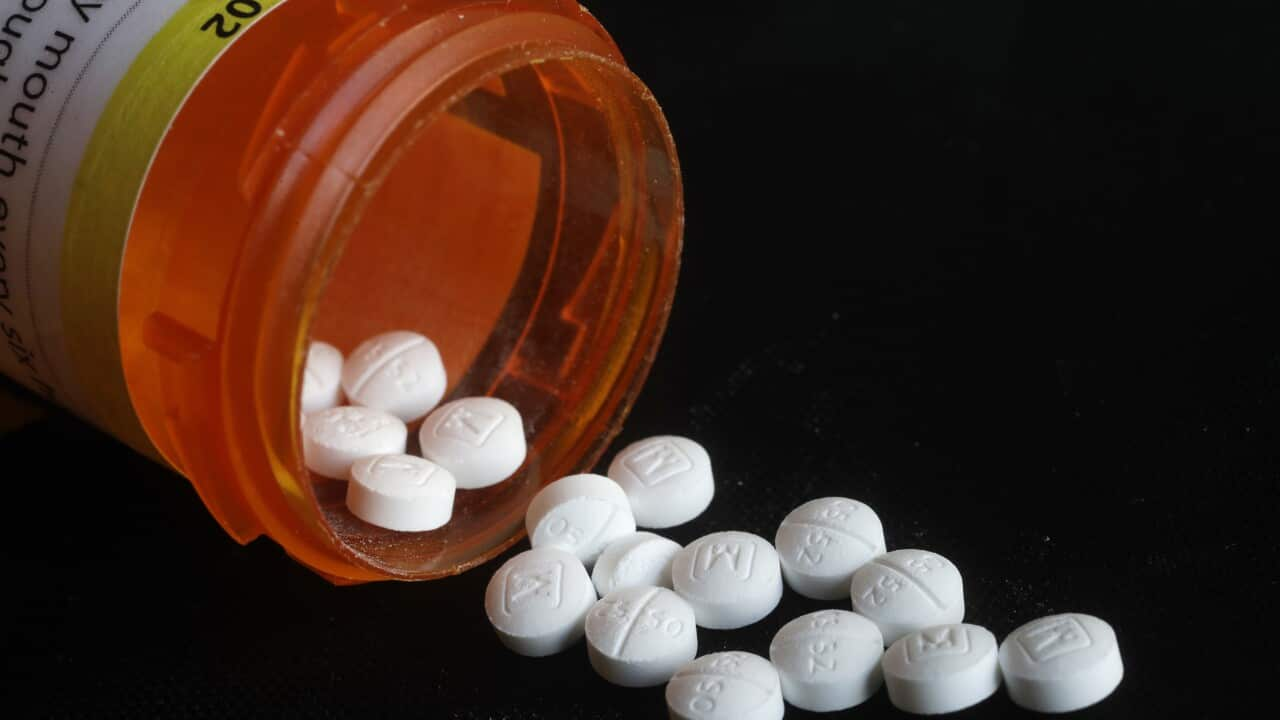TRANSCRIPT:
"America's public enemy number one in the United States is drug abuse. In order to fight and defeat this enemy, it is necessary to wage an all out offensive."
That was Richard Nixon, making a televised public address in 1971 as the president of the United States.
His words would herald the start of a decades-long campaign by authorities to stamp out drug trafficking and drug use across America.
John Ryan is the CEO of Penington Institute, an Australian organisation dedicated to research and advocacy on drugs.
He says Australia has also traditionally had its own hardline approach, with the police at the centre.
"We've got a tendency in Australia to take a big stick approach to drug issues... We tend to default instinctively to a supply control approach without actually thinking that generates its own negative consequences."
Much of those efforts are dedicated to preventing drugs from getting into the community in the first place.
Police and border officials regularly announce the seizure of vast quantities of illicit substances, which have either been imported from overseas or manufactured domestically.
Assistant Commissioner Pryce Scanlon, WA Police: "Today I'm here to announce the results of a major joint investigation, resulting in the seizure of approximately 560 kilograms of cocaine."
But authorities also target drug possession too, with the result that drug-related offences dominate the entire justice system, from arrest to the prison gates.
It's an approach that has attracted increasing criticism.
Former Victoria Police boss Ken Lay has previously declared "you can't arrest your way out of this problem”, while in 2017, former AFP Commissioner Mick Palmer told a Brisbane forum that current enforcement policies weren't working.
"From my point of view as a 33 years police professional who spent, you know, 20 of those years at the coalface as an operational police officer, who started off with a pretty hard attitude towards drugs. You know, you play the game you take the knocks. But very early on you start to realise that some of the impacts of ordinary law enforcement responses to the problems of drug use are pretty clumsy. It's a pretty blunt instrument, and that we often create more harm than good."
Some states and territories have taken note of these concerns, and have moved towards decriminalisation.
Alison Ritter is the director of the Drug Policy Modelling Program at the University of New South Wales.
She has previously told SBS News it's just one of the approaches Australia could try.
"Legalisation refers to making currently illegal drugs, legal in the same way as alcohol and tobacco is. So you could purchase cannabis or methamphetamine from a shop. There are likely to be regulations around age of purchase and there might be licensing requirements. So legalisation refers to the legal supply and use of drugs. Decriminalisation on the other hand refers to the removal of criminal penalties for the personal use of drugs. So that is if someone is using cannabis, instead of a criminal response they would receive an education or a health response."
What that means from state to state varies a great deal.
According to the Alcohol and Drug Foundation, South Australia has the highest diversion rates in the country, with 98 percent of people diverted from the criminal justice system compared to just 32 percent in Western Australia.
In South Australia and Northern Territory, someone discovered to have small amounts of cannabis can be fined instead of charged.
In Queensland, New South Wales and Victorian police have the discretion to caution people, while in the ACT, possession of small amounts of hard drugs like cocaine, heroin, ice, and MDMA now attract fines instead of court dates.
Liberal Senator Michaelia Cash told Parliament at the time of its introduction that she was convinced that was a mistake.
"The notice requires a person to pay a penalty of nearly $100 or attend an approved drug diversion program. 100 dollars and you never go to court. Colleagues, the bitter reality is that parking offences in Canberra are actually now going to be treated more seriously than dangerous drugs. Because in Canberra you will now pay more for parking across the lines in a shopping centre than being caught carrying ice. You will pay more for stopping your car near a postbox than for the possession of heroin."
It's perhaps too early to tell yet what impact the changes have had on reducing costs to the health and justice systems in the capital, but previous studies have repeatedly shown decriminalisation doesn't increase drug use and does benefit those sectors.
There is also evidence of the effectiveness of needle exchange programs, which are designed to prevent users from sharing their syringes in an approach known as harm minimisation.
These exchanges have been credited with keeping rates of HIV among injecting drug users among the lowest in the world.
New South Wales and Victoria have established facilities known as safe injecting rooms, sites that are staffed with trained medical professionals who are equipped with medications that can address overdoses, as well as referral information.
Many other states have resisted calls for these facilities, despite studies showing positive outcomes.
The safe room in New South Wales was established in the inner city suburb of Kings Cross in 2001, and has since seen almost 18,000 clients, reversing nearly 11,000 overdoses, and providing over 20,000 people with treatment and service referrals.
A review of Victoria's facility found it safely managed almost 6000 overdoses and saved 63 lives.
It was made permanent in 2023 after starting as a trial site in 2018, a move then Victorian Premier Daniel Andrews defended staunchly.
"What if it was my son or my daughter? What if it was someone that I cared about? What if we could do more and do something different to save lives?"
Elsewhere, in Queensland and the ACT, there are testing programs that check what is contained in the drugs a person intends to take.
Dr Thomas Norman from La Trobe University says these programs are not about encouraging drug use, but laying the groundwork to help users.
"What it's aiming to do is to kind of change people's behaviour. So we're looking for someone to either discard the substance that they've got or at the bare minimum to use less of that substance that they've got. So it's not just about telling people what drug they have, but it’s an opportunity for people to have a one-on-one conversation with a health professional, and they can provide some really tailored advice."
Some experts, like Professor Jennifer Schumann from the Victorian Institute of Forensic Medicine, want to see pill testing introduced more widely, especially at music festival venues where there's been a recent spate of fatal overdoses.
"We now have a lot of evidence from around the world that drug-checking services are highly effective in the setting of other harm-reduction approaches and this is something we need to strongly consider here in Australia."
At the present time, some governments appear to be unconvinced of their need, as Victoria's Attorney General Jaclyn Symes has made clear.
"There is no current plan for pill testing."
But these testing programs do highlight another core issue: that many drug users still don't always know exactly what they're taking.
Dr David Caldicott is Pill Testing Australia's Clinical Lead.
"There's always a concern when there's a mismatch between what people are expecting to purchase or acquire, and what we actually prove that they have."
Authorities and researchers do know what users are taking.
Principal Australian Criminal Intelligence Commission adviser Shane Neilson has told 6PR Radio in Perth that regular testing is done through the National Wastewater Drug Monitoring Program to identify which drugs are an issue, and where.
"You know, it's a really wicked problem and there's a whole series of causes... The most important thing with wastewater analysis is it measures the actual level of consumption. So we've got a reliable and regular guide to what the problem looks like - and that's on a state basis, on a local basis, and also on a national basis."
The testing shows that in Western Australia, methamphetamine consumption has jumped 40 percent from last year.
Scott Drummond from the Victorian Alcohol and Drug Association has told Channel 9 that Melbourne has the highest level of heroin, ketamine and fentanyl consumption of any Australian capital city.
"Overdoses have increased in Melbourne. We're seeing on average two fatal heroin overdoses a month. It places a huge burden on the already overstretched health system."
Professor Shane Darke from the National Drug and Alcohol Research Centre at the University of New South Wales says his own studies have shown that heroin remains a major issue.
"I published a study last year looking at heroin deaths in Australia. Just over the period of 2020 to 2022, there were 610 fatal heroin deaths over that period. So what you've got to realise is - there tends to be a lot of focus on the pharmaceuticals and I think that's reasonable. But let's not forget there are other - heroin hasn't gone away. If I can find 600 deaths in the course of 2020 to 2022 it shows you've got a major problem still."
Testing has also revealed a 75 percent increase in detections of the synthetic stimulant pentylone.
“The other thing I would emphasise that we keep an eye on. We talk about fentanyl, is the analog (synthetic). There’s a whole list of [[inaudible]] fentanyl etc etc. People might get them over the internet or get – they’re highly dangerous drugs that we have found are entering the market.”
Some advocates say another issue is government policy that has the unintended consequence of driving up demand for illicit substances.
Restrictions on opioid supply have been introduced because accidental fatal overdoses from prescription opioids have now overtaken heroin as the leading cause of drug-related deaths in Australia.
John Ryan says some patients have made the leap to illicit substances after finding their access to legitimate prescriptions limited or blocked.
"We've seen that happening in Australia as a result of the prescription monitoring programs that have been stood up in most jurisdictions. The same thing happened in the US, which is actually almost forgotten now when we talk about the fentanyl problem in the US. That fentanyl problem really blew up at the same time as doctors were reducing access to prescription opioids. So people who are dependent do end up in the illicit market unless they're carefully managed."
With drug use still so prevalent, hardline policy still remains in some Australian states, despite the shift to harm minimisation.
In New South Wales, no formal review of strip-search policies has taken place despite hundreds of children being subjected to the procedures each year.
Premier Chris Minns has told the Today program too many people have died of overdoses at these events - and the search procedures are for their own good.
"Ultimately the decision by NSW Police, particularly around music festivals, goes ahead so that as young people in particular don't take illicit drugs and it doesn't lead to an overdose death at music festivals. Police are caught in a really difficult situation because obviously there's a coronial inquiry, there's a devastated family after an overdose death. It'd be far better if these illicit substances weren't taken before people entered these music and rock festivals."













